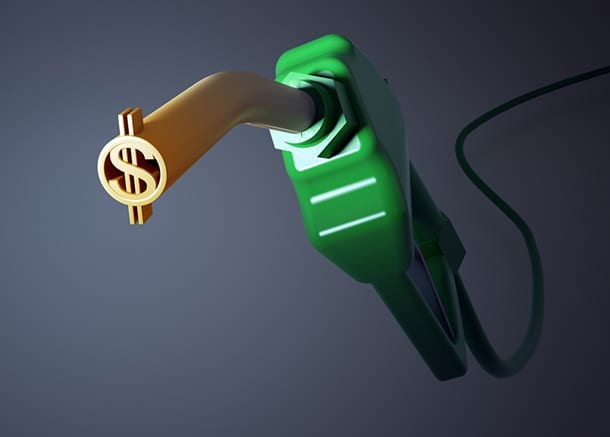
The Battle of Fuel Efficiency: Tips for money saving driving
After seeing fuel prices fluctuate so much lately, it got me thinking about how important it is to drive with fuel savings in mind and whether it should be a real consideration when looking to save money in the long run. Fortunately the partner in crime of one of our sales managers has first hand experience seeing the difference between a hybrid and a 4×4.
Here is her story;
Since taking out car finance and investing in a hybrid as an attempt at offsetting our fuel loving weekend 4wd, I have developed a love-hate relationship with fuel efficient driving. On the one hand I love seeing my speedometer light up in iridescent green, instantly providing me with positive feedback about my sensible and eco-friendly driving choices. On the other hand, I hate that my spouse, a once self-confessed hoon, can get that little L/100km number to read better than mine.
So why is the L/100km a big deal? This number refers to the number of litres of fuel the car uses for 100km travelled. It is a measure of the fuel consumption of the vehicle and some indicator as to how much your car is going to cost you to run and the impact on the environment. When purchasing a new vehicle, the average L/100km is displayed on the dash or figures for all cars can be found on the Green Vehicle website (http://www.greenvehicleguide.gov.au). The vehicle manufacturer provides these fuel figures based on a standardised testing environment. As these laboratory tests do not factor in variables such as road conditions, traffic, driving styles and weather, these numbers are really just a guide. It does however allow for cars to be compared according to their relative fuel economy, with fewer litres per 100km being better.
The majority of new cars now have on-board computers that display the average L/100km to the driver. A selection of these cars, such as ours, also use colour feedback systems to provide drivers immediate information about their driving style and relative fuel efficiency. Honda has developed the Eco Assist system that also awards drivers points and trophies on the dash display when certain eco-friendly goals have been met. Research has shown that these feedback systems can improve fuel efficiency by up 20% which translates into quite a saving at the petrol pump.
These visual reminders can be very motivating but do not let anyone else behind the wheel if you’re close to getting a trophy! After a determined week to stay “in the green” when driving, smash 5.8L/100km, and win a myself a little trophy, I found myself handing over the keys on Monday morning with only one or two trips to the finish line. As the competitive type, I had found some tips for greener motoring and tried to follow through during the week. Needless to say, someone in our house boasted about the trophy on Monday night, and that someone wasn’t me. All is not lost however as I can now share the following tips that actually worked in my battle plan.
Top 5 Tips for money saving driving
- Take it easy on the pedals – Reducing quick acceleration and hard braking can improve fuel efficiency by up to 30%.
- Check the tyres are inflated to the right pressure – this reduces rolling resistance and the energy needed to turn the wheels (see our article on Safe Tyres for more information).
- Take out the junk in the trunk – Extra weight in your car means extra work for the engine and more fuel. Heavy equipment or tools stored in the car and loaded roof racks are common fuel chewers.
- Drive at a constant speed – This minimises acceleration and deceleration and reduces fuel consumption. It’s a good idea to use cruise control where possible to achieve this.
- Change up gears – Cars run most efficient at low revs so changing up gears before 2,500 rpm and maintaining driving between 1500 – 2500 rpm is best.
Following these tips reduced my average L/100km from 5.8 to 5.1 in a week and would have earned me a trophy if not for unfortunate timing. In any case, less fuel use means fewer trips to the petrol station and more money in our pocket. Now that is a pretty good reward.
Would you like some more tips on reducing the cost of your car or keen to upgrade to a more fuel efficient option? Get in touch with the finance professionals at 360.

